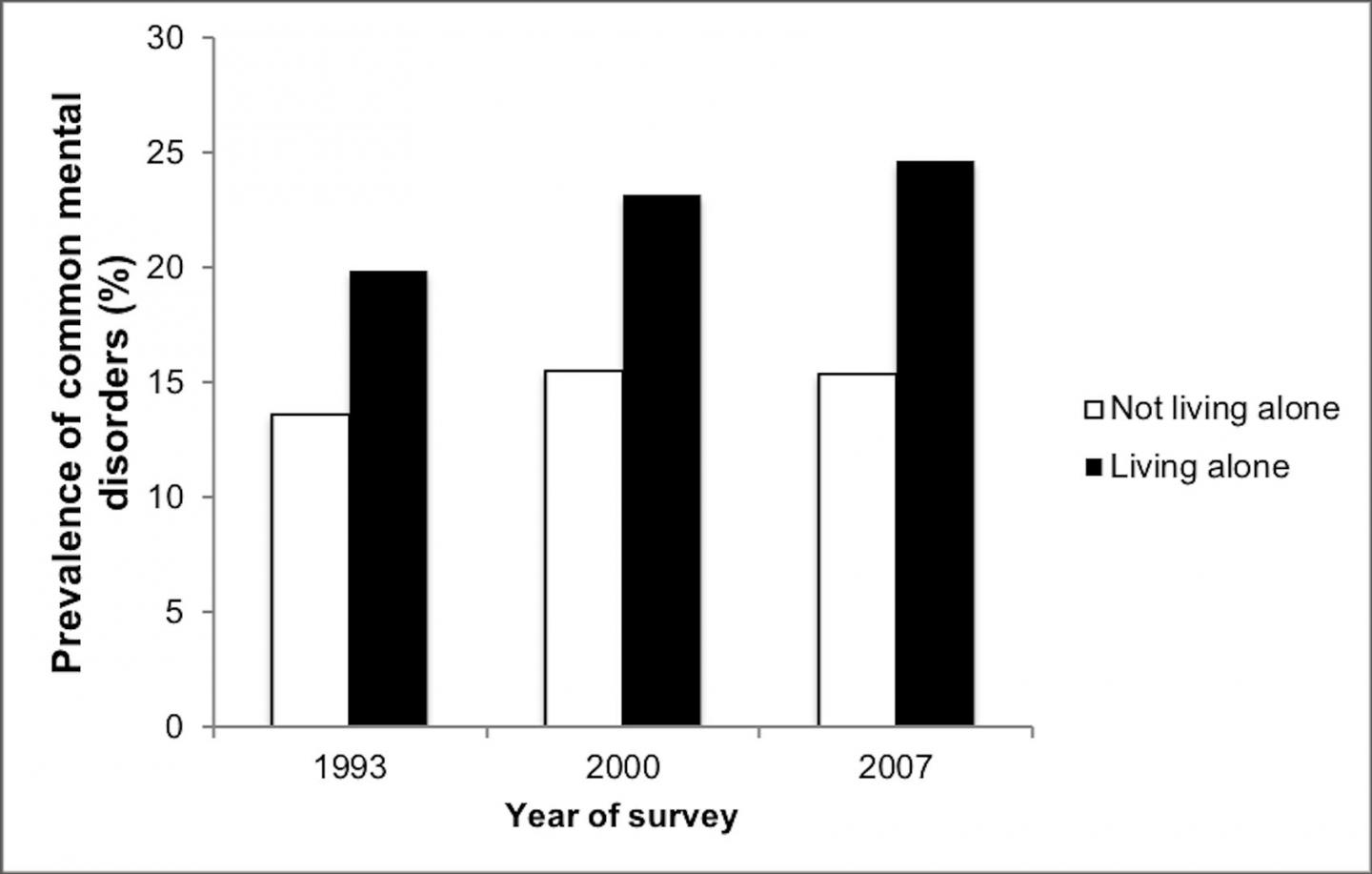
Credit: Jacob et al., 2019
Living alone is positively associated with common mental disorders, regardless of age and sex, according to a study published May 1, 2019 in the open-access journal PLOS ONE by Louis Jacob from University of Versailles Saint-Quentin-en-Yvelines, France, and colleagues.
The proportion of people living alone has increased in recent years due to population aging, decreasing marriage rates and lowering fertility. Previous studies have investigated the link between living alone and mental disorders but have generally been conducted in elderly populations and are not generalizable to younger adults.
In the new study, researchers used data on 20,500 individuals aged 16-64 living in England who participated in the 1993, 2000, or 2007 National Psychiatric Morbidity Surveys. Whether a person had a common mental disorder (CMD) was assessed using the Clinical Interview Schedule-Revised (CIS-R), a questionnaire focusing on neurotic symptoms during the previous week. In addition to the number of people living in a household, data was available on factors including weight and height, alcohol dependence, drug use, social support, and loneliness.
The prevalence of people living alone in 1993, 2000, and 2007 was 8.8%, 9.8%, and 10.7%. In those years, the rates of CMD was 14.1%, 16.3%, and 16.4%. In all years, all ages, and both men and women, there was a positive association between living alone and CMD (1993 odds ratio 1.69; 2000 OR 1.63; 2007 OR 1.88). In different subgroups of people, living alone increased a person’s risk for CMD by 1.39 to 2.43 times. Overall, loneliness explained 84% of the living alone-CMD association. The authors suggest that interventions which tackle loneliness might also aid the mental wellbeing of individuals living alone.
Jacob summarizes: “Living alone is positively associated with common mental disorders in the general population in England.”
###
Contact: Louis Jacob, [email protected], Ph.: (+33)-6-27-88-37-06
Press-only preview: https:/
Image Caption: Prevalence of common mental disorders by living arrangement.
Image Credit: Jacob et al., 2019
Citation: Jacob L, Haro JM, Koyanagi A (2019) Relationship between living alone and common mental disorders in the 1993, 2000 and 2007 National Psychiatric Morbidity Surveys. PLoS ONE 14(5): e0215182. https:/
Funding: Ai Koyanagi’s work is supported by the Miguel Servet contract financed by the CP13/00150 and PI15/ 00862 projects, integrated into the National R + D + I and funded by the ISCIII–General Branch Evaluation and Promotion of Health Research– and the European Regional Development Fund (ERDF-FEDER). These funders had no role in the study design, collection, analysis, and interpretation of the data; writing of the report; and the decision to submit the article for publication.
Competing Interests: The authors have declared that no competing interests exist.
In your coverage please use this URL to provide access to the freely available article in PLOS ONE: http://journals.
Media Contact
Louis Jacob
[email protected]
Original Source
http://journals.
Related Journal Article
http://dx.



